- Home
- Salman Rushdie
The Jaguar Smile Page 3
The Jaguar Smile Read online
Page 3
Jaime Wheelock, another of the FSLN’s nine comandantes de la revolución, who was now the agriculture minister and looked even younger than Luis Carrión, addressed the crowd. It was impossible not to notice that the emotional distance between the audience and the orator was very small. I couldn’t think of a Western politician who could have spoken so intimately to such a crowd. The parish priest of Camoapa, Father Alfonso Alvarado Lugo, also spoke. ‘I am happy,’ he told the campesinos, ‘that you, who used to be on the streets, can now cultivate the land.’ The campesinos came up and received their land titles, informally, with little fuss. It seemed natural to be moved.
The versicle-and-response format took over. A young Sandinista woman acted as cheerleader. ‘The people united,’ she cried into a microphone, and the crowd replied: ‘ … will never be defeated!’
‘Let us struggle!’
‘…For peace!’
‘Venceremos!’
‘No pasarán.’
Oh, by the way: at the end of the ceremony, the village band played — amongst other popular local tunes — the Internationale.
3
POETS ON THE DAY OF JOY
On the seventh anniversary of Somoza’s departure with coffins and coffers, I found myself accompanying a well-known poet who was on his way to make an important telephone call. The poet was Daniel Ortega, whose most popular work was perhaps the one entitled I missed Managua in miniskirts. When Managuan hemlines rose above the knee, Ortega was in jail.
President Ortega — or ‘Comandante Daniel’, as he was universally known — didn’t want to talk about his prison experiences any more. His poem, In the Prison, indicated why this might be:
Kick him this way, like this,
in the balls, in the face, in the ribs.
Pass me the hot iron, the billy-club.
Talk! Talk, you son-of-a-bitch,
try salt water,
ta-a-alk, we don’t want to mess you up.
I began to ask him about his writing, but he seemed embarrassed by my questions. ‘In Nicaragua,’ he said, ‘everybody is considered to be a poet until he proves to the contrary.’ Nowadays, his main literary effort was to persuade his ministers and officials to speak clearly to the people. ‘Too often we fall into using a language that puts them off, that creates a gulf.’ He looked like a bookworm who had done a body-building course; his manner, too, combined a bespectacled blinking, mild-voiced diffidence with an absolutely contradictory self-confidence. You wouldn’t kick sand into his face any more.
Talking to the people was a priority for his administration. He regularly took his entire cabinet to meet the people in popular forums, making himself accountable in a way his main Western critics never would. I tried to imagine Ronald Reagan or Margaret Thatcher agreeing to submit themselves to a monthly grilling by members of the public, and failed.
Today, however, was about a different kind of communication. The phone call Ortega was on his way to make represented the ceremonial inauguration of the ‘Inter-Sputnik’ communications link between Nicaragua and the countries of the socialist bloc. We arrived at the dish antenna, which sat in the Managua hills not far from the wooden FSLN sign, and listened to speeches from Russian dignitaries. The new installation had been paid for by the USSR, and the US was already calling it a spy base. It looked like a telephone system to me.
As Daniel Ortega telephoned first his ambassador in Havana and then Nicaragua’s man in Moscow, the stupidity of US policy seemed glaringly obvious. In Nicaragua, there were old Jack Nicholson movies on the television, Coca-Cola did great business, the people listened to Madonna on the radio, singing about living in a material world/and I am a material girl; baseball was a national obsession, and people spoke with pride of the number of Nicaraguans who had made the major leagues in the United States. In the old Somoza days, when the newspapers were censored, they would print photographs of Marilyn Monroe and other Hollywood movie stars in place of the banned articles, creating what may be a unique alliance of Hollywood with radical protest. In Nicaraguan literature, too, the US influence was of enormous importance. The country’s poetry had been profoundly affected by the work of Walt Whitman and Ezra Pound.
Now, however, there was the economic blockade. A shipment of Dutch cranes, en route to Nicaragua, had been impounded by the US authorities in the Canal Zone. IBM had withdrawn all service facilities from Nicaragua, obliging an already impoverished country to change, at great expense, from IBM computers to other, less ideologically motivated brands. (What would become, I wondered, of the IBM word processor Sergio Ramírez had shown me with all the eagerness and pride of a new-technology nut?) Most recently, Oxfam America had been prevented by the Reagan administration from sending a $41,000 shipment of seeds, hoes and farm equipment to Nicaragua.
It was impossible to spend even a day in Nicaragua without becoming aware of the huge and unrelenting pressure being exerted on the country by the giant standing on its northern frontier. It was a pressure that informed every minute of every day.
In the morning paper, Nicaragua’s leading cartoonist, Roger, had drawn a gigantic Uncle Sam, who was bending over and peering through binoculars at a tiny Nicaraguan house the size and shape of Snoopy’s dog kennel. ‘Yes,’ read his speech balloon, ‘I can see it clearly: they’re definitely planning to invade.’
The ‘Peanuts’ strip, by chance, had just run an American variation on the same theme. Linus, Snoopy, and, if memory serves, Lucy sat watching TV, dressed up in camouflage combat fatigues. ‘What’s he saying now?’ the girl asked. Linus replied, ‘The same thing he said yesterday. He says there are people out there who want to destroy our way of life.’ ‘I don’t trust him,’ said Lucy or Patty or whoever it was. ‘Really? Why is that?’ ‘I don’t trust anybody.’
The Soviet ministers stood beside Daniel Ortega as he made his call to Moscow. The New York Times, in a leader article, had just called the Sandinistas ‘Stalinists’. Stephen Kinzer, the paper’s man in Managua, had belatedly filed a report (without visiting the scene) on the most recent Contra atrocity, the mining of a road in northern Jinotega province, near Bocay. The mine had blown up a bus and killed thirty-two civilians, including several schoolchildren. Kinzer’s report suggested that the FSLN could have planted the mine itself, in a bid to gain international sympathy.
Pressure, and a phone call to Moscow. My enemy’s enemy becomes, eventually, my friend.
There was a shortage of beans in Managua. (Imagine Italy running out of pasta.) Some days it was hard to get corn to make tortillas. Inflation was close to 500%, and prices had gone crazy. It could cost you six head of cattle to get your truck serviced.
The economy was hugely dependent on imports. Nicaragua produced no glass, no paper, no metal. It was also very vulnerable to attack. The economist Paul Oquist described it to me as a ‘one of everything economy’ — one deep-water port, one oil refinery, one international airport. US ‘surgical strikes’ would have little difficulty in paralysing the country. ‘Maybe they would spare the refinery,’ said Oquist, a norteamericano himself, ‘because it’s run by Exxon.’
In the five years of the war, the Nicaraguan economy had suffered an estimated $2 billion-worth of damage. In 1985, Nicaragua’s total exports had been valued at $300 million; imports ran at $900 million. Two billion dollars was roughly the same as one year’s gross national product. So Nicaragua had lost one entire year’s production in the last five, with most of the damage occurring in the second half of that period.
When the International Court at the Hague ruled against the US, it also upheld Nicaragua’s claim that the US was liable to pay reparation for the economic damage. The Court also rejected the US argument that Nicaragua was the ‘regional aggressor’, and that states in the zone were therefore entitled to defend themselves against it. (The judges who voted for the majority verdict came from Algeria, Argentina, Brazil, China, France (two), India, Italy, Nigeria, Norway, Poland and Senegal. The three who dissented from the judgment
were from the United States, Britain and Japan.)
The Reagan administration wasn’t interested in international law, at least not when its custodians found against the US. The situation was surreal: the country that was in fact acting illegally, that was the outlaw, was hurling such epithets as totalitarian, tyrannous and Stalinist at the elected government of a country that hadn’t broken any laws at all; the bandit was posing as the sheriff.
Daniel Ortega finished talking to Moscow and put down the phone. Everybody, Russians, Nicaraguans, escritor hindú, burst into smiles. It was, after all, the Day of Joy.
And after the Day, the Night. In a large, green circus-tent donated by Cuba, musicians from all over Central America were playing in a festival of contemporary music, the nueva canción. Salsa-rhythms and protest songs alternated. Managua had become quite a centre for liberal American musicians. As well as the artists in the circus tent, the Carpa Nacional, there had been recent concert performances here by Peter, Paul and Mary. Jackson Browne had been down, too.
Meanwhile, across town, seven women poets were reciting in the ruins of the Grand Hotel. Most of the hotel had collapsed in the earthquake. What remained — a central courtyard overlooked by balconies and open, now, to the sky — served the city as a cultural centre. The ruins were crowded with poetry-lovers. I did not think I had ever seen a people, even in India and Pakistan where poets were revered, who valued poetry as much as the Nicaraguans. At the back of the open stage, the seven women clustered and paced, all dressed up to the nines for the occasion, and all clearly nervous. They came forward in turn, to be introduced by the critic Ileana Rodríguez, and as each poet finished her reading and returned to the far end of the ruins, the others would group around her, to embrace and to reassure.
Two of the seven poets particularly caught my attention: Vidaluz Meneses, a slight, grave woman with a quietness of delivery that was gently impressive, and Gioconda Belli, winner of the prestigious Casa de las Américas prize. Her poetry was at once extremely sensual and politically direct.
Vidaluz Meneses’ father had been a General in Somoza’s National Guard and had eventually been assassinated by the Guerrilla Army of the Poor, in Guatemala in 1978. (He was there as Somoza’s ambassador.) Her moving poem, Last postcard for my father, General Meneses, showed her to be a writer whose work had been enriched, though also made much more painful, by the ambiguity of her family circumstances. (At the time of her father’s death, and for some years previously, she had been working secretly with the Frente. When her father found out, relations between the two became, not unnaturally, rather difficult.) In an interview with Margaret Randall, Meneses talked about that ambiguity: ‘I have never been able to hate the enemy, but I feel a tremendous sorrow. Because someone I loved so much didn’t share my ideals. And that, I guess, is the central thread of my work … And yet I know that with that poem I disappoint many friends … Maybe the poem seems weak to them. I believe that poetry has to be authentic, though.’
She spoke of belonging to a ‘sacrificed generation’, for whom the work of rebuilding the nation had to take priority over their private needs as poets. It was the kind of statement one might perhaps have expected from a woman whose revolutionary motivation was essentially religious in origin, as Meneses’ certainly was. But Gioconda Belli, a far more secular poet, made very similar remarks to Margaret Randall. She had just decided, she said, to make her work (for the revolution) ‘the best poem I can write.’
Belli’s poems closed the evening. She had created a kind of public love-poetry that came closer, I thought, to expressing the passion of Nicaragua than anything I had yet heard:
Rivers run through me
mountains bore into my body
and the geography of this country
begins forming in me
turning me into lakes, chasms, ravines,
earth for sowing love
opening like a furrow
filling me with a longing to live
to see it free, beautiful,
full of smiles.
I want to explode with love…
4
MADAME SOMOZA’S BATHROOM
It had become the custom, when young writers gathered in the cafés of Managua, to rubbish Ernesto Cardenal. As Father Cardenal was not only the country’s most internationally renowned poet, but also the Minister of Culture, I took these attacks to be indications that the country’s literature was in reasonably healthy and irreverent shape. The coffee-shop sniping didn’t seem to bother Cardenal much. He just went on beaming away, looking, with his little beret and his silver locks and beard, and his cotona, the loose peasant’s smock he wore over his blue jeans, like a Garry Trudeau cartoon of himself: the radical Latino priest according to ‘Doonesbury.’
The attack that did upset Cardenal, and many Nicaraguans along with him, was the Pope’s. The story of Wojtyla’s arrival in Managua had passed into legend: Cardenal knelt to kiss the Pontiff’s ring, but John Paul II shook angry fists at him and commanded him to regularize his relationship with the Church. The poet burst into tears.
At the time of my visit, neither Ernesto Cardenal nor the other priest high in the government, the Foreign Minister, Miguel d’Escoto, were permitted to officiate at the Mass. They were, in effect, suspended. As I read Cardenal’s poem The Meaning of Solentiname, some of the reasons for this rift in the Church became clear:
Twelve years ago I went to Solentiname with two
brothers
in Christ
to found a small contemplative community…
contemplation
brought us to the revolution;
and thus it had to be
because in Latin America
a man of contemplation cannot turn his back
on political struggle…
What most radicalized us politically were
the Gospels.
At mass, we discussed the Gospels
with the peasants
in the form of a dialogue,
and they began to understand the essence of the
divine
message:
the heralding of God’s kingdom,
Which is: the establishment on earth of a just
society…
At first we had preferred to make
a non-violent revolution.
But later we came to understand
that right now, in Nicaragua,
non-violent struggle is not possible…
Now everything has come to an end in our
community.
Solentiname
was like a paradise
but in Nicaragua
paradise is not yet possible.
I met Cardenal in Hope Somoza’s bathroom. The Ministry of Culture occupies what used to be the dictator’s residence, and the Minister’s office, he gleefully informed me, had once witnessed Mme Somoza’s daily toilette. Had he ever been here, I asked, in the bad old days? No, no, he exclaimed, throwing up his hands in a parody of what would once have been perfectly legitimate terror. ‘In those days the place was surrounded by guns, tanks, helicopters. It was frightening just being in the neighbourhood.’ I told him of my own experience of being in the neighbourhood of a Somoza, and he was delighted. ‘Then you know everything.’
He showed me round. ‘This was the bar. That is the Japanese house which Hope Somoza liked to use for her meditating. Here, for the guards, and here, for the horses.’ Concrete tennis courts cracked and decayed in the rain. I felt that the re-allocation of this house of barbarity to the Ministry of Culture was a particularly elegant revenge, and so, clearly, did Cardenal.
Back in Hope’s bathroom we discussed his development as a poet. There was the early influence of Neruda — ‘his lyric mode, not the political stuff’ — and, later, the much more profound impact of North America: Pound, Whitman, Marianne Moore. We also talked about the parallel development of his political radicalism. ‘In the beginning I was a sort of Christian Democrat. I had many
arguments with Carlos Fonseca and the others. I was against the revolutionary route at that time. They were always very patient with me, very gentle.’ This, after all, was a man who had entered a Trappist monastery when he was thirty-one. Revolution did not come naturally to such an inward, contemplative spirit.
The turning-point was his visit to Cuba, immediately after the revolution there. ‘It was a conversion,’ he said. ‘When I got back, I announced that I had been converted. It created a great scandal.’ He beamed happily at the memory of it.
I said I could understand his conversion easily enough; the Cuban revolution had clearly been a great event for the whole of Latin America, an affirmation of possibility, a demonstration that oppressors could be overthrown. But now, I added, I had serious reservations about Cuba. Did he share any of these reservations? Did he feel, for example, that the Cuban revolution had taken some wrong turnings, and that it could serve, for Nicaragua, as a warning as well as an inspiration?
‘No,’ he said, with a radiant smile. ‘Why? What wrong turnings?’
All right, I thought, he’s the Minister of Culture, he doesn’t want to find Cardenal Attacks Cuba splashed across the world’s papers the day after tomorrow. But he was a writer, too… I took a deep breath and mentioned, er, for example, human rights abuses? Political prisoners, torture, attacks on homosexuals, on, um, writers?

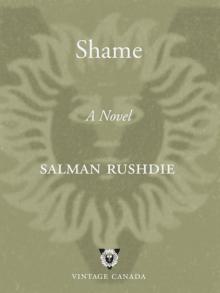 Shame
Shame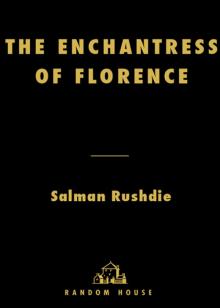 The Enchantress of Florence
The Enchantress of Florence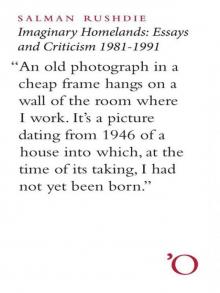 Imaginary Homelands: Essays and Criticism 1981-1991
Imaginary Homelands: Essays and Criticism 1981-1991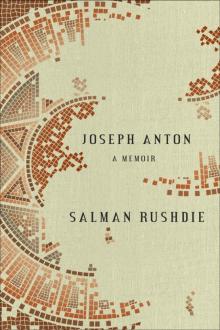 Joseph Anton: A Memoir
Joseph Anton: A Memoir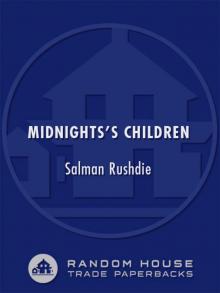 Midnight's Children
Midnight's Children East, West: Stories
East, West: Stories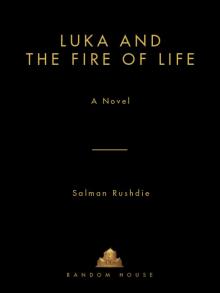 Luka and the Fire of Life
Luka and the Fire of Life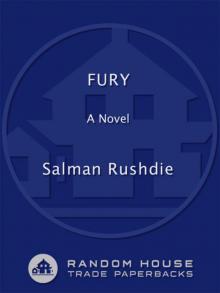 Fury Fury Fury
Fury Fury Fury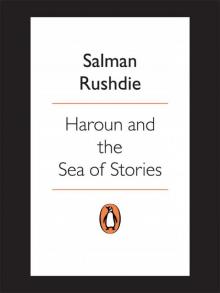 Haroun and the Sea of Stories
Haroun and the Sea of Stories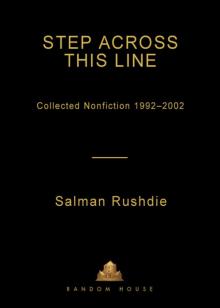 Step Across This Line: Collected Nonfiction 1992-2002
Step Across This Line: Collected Nonfiction 1992-2002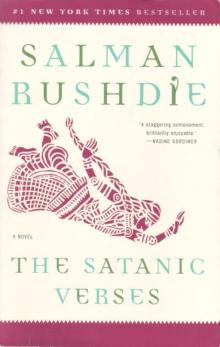 The Satanic Verses
The Satanic Verses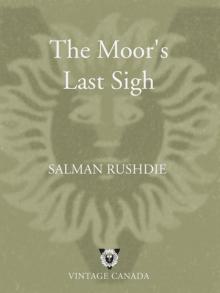 The Moor's Last Sigh
The Moor's Last Sigh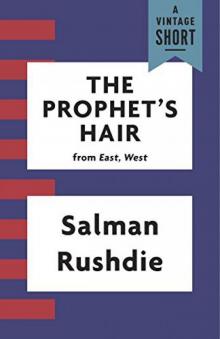 The Prophet's Hair
The Prophet's Hair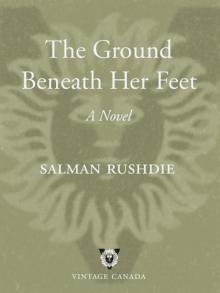 The Ground Beneath Her Feet
The Ground Beneath Her Feet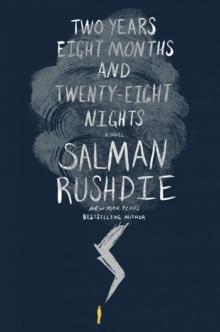 Two Years Eight Months and Twenty-Eight Nights
Two Years Eight Months and Twenty-Eight Nights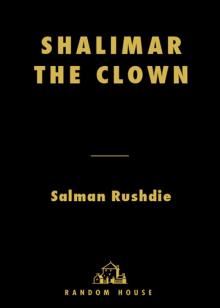 Shalimar the Clown
Shalimar the Clown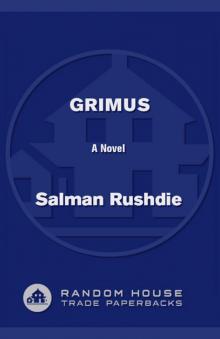 Grimus
Grimus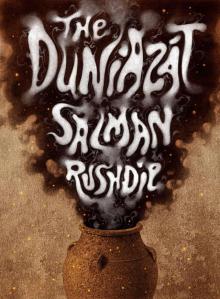 The Duniazát
The Duniazát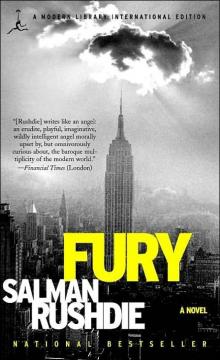 Fury
Fury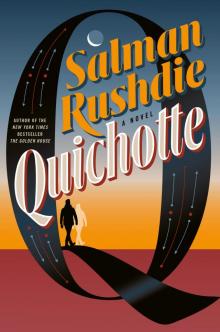 Quichotte
Quichotte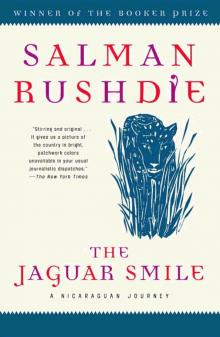 The Jaguar Smile
The Jaguar Smile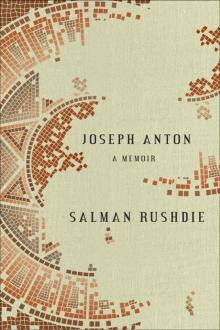 Joseph Anton
Joseph Anton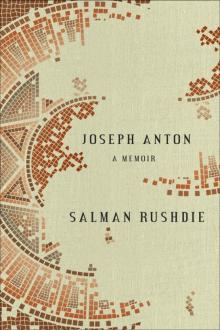 Joseph Anton: A Memoir: A Memoir
Joseph Anton: A Memoir: A Memoir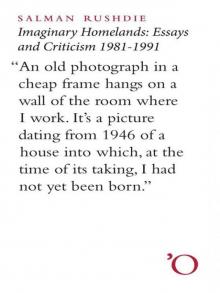 Imaginary Homelands
Imaginary Homelands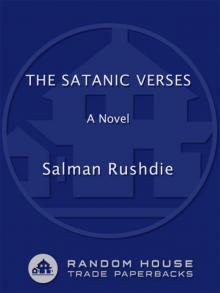 The Satanic Verses: A Novel
The Satanic Verses: A Novel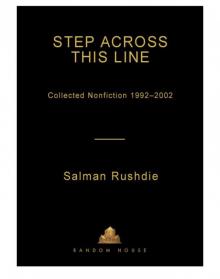 Step Across This Line
Step Across This Line East, West
East, West